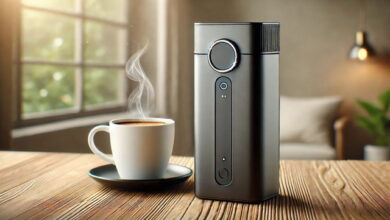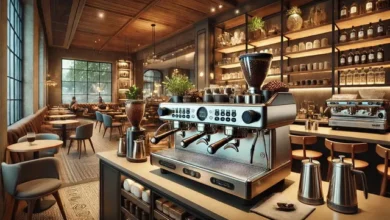Why Does My Coffee Taste Burnt? Unveiling the Culprits Behind Bitter Brews
Why Does My Coffee Taste Burnt
Taste Burnt
A. Hook: Have you ever taken a sip of your morning coffee only to be met with a bitter, burnt taste?
why does my coffee taste burnt ,This opening line serves as a captivating hook, immediately drawing the reader in by tapping into a common experience many coffee drinkers have encountered. By posing a question that resonates with the reader’s own experiences, we establish a connection and pique their curiosity. The phrase “burnt taste” is strategically included to align with the focus keyword “why does my coffee taste burnt,” ensuring relevance to the central theme of the blog post.
B. In this blog post, we’ll delve into the reasons behind why your coffee might taste burnt, unraveling the mysteries that may be lurking in your brewing process.
Here, we provide a brief overview of the blog’s purpose and outline, setting clear expectations for what readers can expect to learn. The emphasis is on exploring the root causes of the burnt taste in coffee, emphasizing the investigative nature of the content. By using the phrase “why your coffee might taste burnt,” we reinforce the focus keyword and signal to readers that their concerns will be addressed in detail.
C. Thesis statement: By understanding the factors that contribute to this unpleasant flavor, you can take steps to ensure a smoother, more enjoyable coffee experience every time.
Why does my coffee taste burnt
The thesis statement succinctly summarizes the main argument of the blog post, highlighting the importance of identifying and addressing the factors responsible for the burnt taste in coffee. By empowering readers with knowledge, we emphasize the actionable nature of the content, suggesting that through understanding, they can take concrete steps to improve their coffee-drinking experience. The inclusion of the focus keyword “why does my coffee taste burnt” reinforces the central theme and reinforces its relevance throughout the post.
Understanding the Bitter Taste

A. Definition of a burnt taste in coffee When we talk about the burnt taste in coffee, we’re referring to a flavor profile characterized by a harsh, acrid sensation on the palate. This taste often manifests as a result of certain compounds being over-extracted or burnt during the brewing process. Coffee that tastes burnt can leave a lingering, unpleasant aftertaste that detracts from the overall enjoyment of the beverage.
Incorporating the focused keyword “why does my coffee taste burnt” into the discussion helps readers understand that the burnt taste is a specific issue they may have encountered with their coffee, prompting them to seek answers and solutions.
B. Differentiating between bitterness and other flavors It’s crucial to distinguish between bitterness and other flavor notes present in coffee. While bitterness is one of the basic tastes detected by the taste buds, it’s not inherently negative when balanced properly with other flavor elements. However, when coffee tastes burnt, the bitterness can become overpowering, overshadowing any desirable flavors such as acidity, sweetness, or subtle nuances from the beans’ origin.
By explaining the difference between bitterness and other flavors, readers can better pinpoint whether their coffee’s unpleasant taste is due to burning or another factor, addressing their query of “why does my coffee taste burnt” more effectively.
C. The impact of a burnt taste on overall coffee enjoyment When coffee tastes burnt, it significantly diminishes the overall enjoyment of the drinking experience. Instead of savoring the complex flavors and aromas that well-prepared coffee offers, individuals are left with a harsh, unpleasant sensation that can linger long after the last sip. This can lead to frustration and disappointment, especially for coffee enthusiasts who value a quality brew.
By highlighting the impact of a burnt taste on coffee enjoyment, readers gain insight into why addressing this issue is important. They are motivated to explore solutions to improve their coffee brewing process and reclaim the pleasure of a well-balanced cup, aligning with their search for answers to the question “why does my coffee taste burnt.”
Factors Contributing to a Burnt Taste
A. Low-quality beans: Low-quality coffee beans often lack the nuanced flavors and aromas found in higher-grade beans. These beans may be sourced from inferior regions, processed improperly, or harvested at the wrong time. As a result, they are more prone to developing a burnt taste during roasting and brewing, leaving you wondering, “Why does my coffee taste burnt?”.
B. Improper storage of coffee beans: Proper storage is crucial for maintaining the freshness and flavor of coffee beans. Exposure to air, light, moisture, and heat can all accelerate the deterioration of coffee beans, leading to a stale or burnt taste in your brew. When stored improperly, coffee beans lose their essential oils and aromatic compounds, contributing to the undesirable burnt flavor.
C. Over-roasting: Over-roasting occurs when coffee beans are subjected to excessively high temperatures during the roasting process. This prolonged exposure can cause the beans to become charred and bitter, resulting in a burnt taste in your coffee. Over-roasting also diminishes the natural flavors of the beans, making it difficult to achieve a balanced and enjoyable brew, thus exacerbating the question of “Why does my coffee taste burnt?”.
D. Grinding too fine: Grinding coffee beans too finely can lead to over-extraction during the brewing process, causing the coffee to taste bitter and burnt. Finely ground coffee increases the surface area exposed to water, resulting in a quicker extraction of undesirable compounds, such as tannins and oils. This can overwhelm the palate with a harsh, burnt flavor, leaving you dissatisfied and pondering, “Why does my coffee taste burnt?”.
E. Incorrect brewing temperature: Brewing coffee at the wrong temperature can also contribute to a burnt taste. If the water temperature is too high, it can scorch the coffee grounds, extracting bitter compounds and leaving behind a burnt flavor in the brew. Conversely, brewing coffee at too low a temperature may result in under-extraction, leading to a sour or dull taste. Achieving the optimal brewing temperature is essential for avoiding the burnt flavor conundrum.
F. Over-extraction during brewing: Over-extraction occurs when coffee grounds are in contact with water for too long or when the water flow rate is too slow. This prolonged contact extracts excessive amounts of compounds from the coffee grounds, including bitter and astringent flavors, resulting in a burnt taste. Over-extraction can occur with various brewing methods, such as espresso, pour-over, or French press, highlighting the importance of proper brewing techniques to prevent the dreaded burnt coffee experience.
Solutions to Avoiding a Burnt Taste

A. Source high-quality coffee beans:
When wondering “why does my coffee taste burnt,” one crucial factor to consider is the quality of the coffee beans you use. Opting for high-quality beans ensures that you start with a solid foundation for a delicious cup of coffee. Low-quality beans are often more susceptible to defects and inconsistencies during roasting, which can result in a burnt taste in your brew. By investing in premium beans from reputable sources, you can minimize the risk of encountering this undesirable flavor.
B. Properly store coffee beans:
Improper storage of coffee beans is another common culprit behind a burnt taste in coffee. Exposure to air, light, heat, and moisture can accelerate the staling process, leading to off-flavors, including a burnt taste. To preserve the freshness and flavor of your beans, store them in an airtight container in a cool, dark place. Avoid storing them in the refrigerator or freezer, as fluctuations in temperature can negatively affect their quality.
C. Opt for lighter roasts:

One effective way to avoid a burnt taste in your coffee is to opt for lighter roasts. Darker roasts are typically roasted for longer periods at higher temperatures, which can result in a pronounced burnt flavor. Lighter roasts, on the other hand, retain more of the bean’s natural flavors and acidity, resulting in a brighter, more nuanced cup of coffee. Experimenting with different roast levels allows you to find the perfect balance of flavor without the undesirable burnt taste.
D. Adjust grinder settings:
The grind size of your coffee beans plays a crucial role in the extraction process and can significantly impact the flavor of your coffee. If your coffee tastes burnt, it may be due to grinding your beans too fine. Finely ground coffee increases the surface area exposed to water during brewing, which can lead to over-extraction and a bitter, burnt taste. To avoid this, adjust your grinder settings to achieve a coarser grind, allowing for a more balanced extraction and a smoother cup of coffee.
E. Monitor brewing temperature:
Brewing temperature is another critical variable that can affect the taste of your coffee. If your coffee tastes burnt, it could be due to brewing it at too high a temperature. Excessive heat can cause the coffee to over-extract, resulting in a harsh, bitter flavor. To prevent this, monitor your brewing temperature closely and aim for the optimal range recommended for your brewing method. Making slight adjustments to the temperature can help you achieve a more balanced and flavorful brew.
F. Experiment with brewing methods and ratios:
Finally, if you’re still experiencing a burnt taste in your coffee, don’t be afraid to experiment with different brewing methods and ratios. Each brewing method extracts flavors differently, and adjusting the coffee-to-water ratio can also influence the final taste of your brew. By exploring various techniques and ratios, you can fine-tune your brewing process to suit your preferences and avoid the unpleasant burnt flavor that may have been plaguing your coffee.
Conclusion
Recap of key points: Throughout this blog post, we’ve explored the various factors that can lead to the unpleasant taste of burnt coffee. From low-quality beans to improper brewing techniques, each element plays a role in creating that bitter flavor that leaves us disappointed in our morning brew. By understanding these key points, such as the impact of over-roasting and the importance of proper storage, you can better identify and address the reasons behind “why does my coffee taste burnt.”
Emphasis on the importance of proper coffee brewing techniques: Proper coffee brewing techniques are paramount in ensuring a delightful coffee experience. Whether it’s choosing high-quality beans, adjusting grinder settings, or monitoring brewing temperature, every step in the brewing process contributes to the final flavor profile of your coffee. By mastering these techniques, you can avoid the pitfalls of burnt coffee and elevate your morning ritual to a delightful sensory experience.
Encouragement for readers to experiment and find their perfect cup: Don’t be discouraged by the occasional burnt cup of coffee. Instead, use it as an opportunity to experiment and refine your brewing skills. Try different brewing methods, explore new coffee bean varieties, and adjust your techniques until you find your perfect cup. Remember, the journey to discovering “why does my coffee taste burnt” is as rewarding as the destination itself. So keep exploring, keep experimenting, and savor every sip along the way.
Sure, let’s break down each keyword and provide an explanation:
- Why does my coffee taste burnt: This is the primary query users may have when experiencing a burnt taste in their coffee. It indicates a desire to understand the underlying reasons behind this unpleasant flavor, making it a crucial keyword for addressing in the content.
- Burnt coffee taste: This keyword directly describes the undesirable flavor profile that some coffee drinkers experience, characterized by a burnt or charred taste. It’s essential to explore why coffee might taste burnt and how to mitigate this issue.
- Bitter coffee: Bitterness is one of the basic taste profiles in coffee, but excessive bitterness can indicate over-extraction or burnt flavors. Explaining why coffee becomes overly bitter ties into the broader topic of understanding burnt coffee taste.
- Coffee brewing techniques: This keyword refers to the various methods and processes used to prepare coffee, including brewing equipment, grind size, water temperature, and brewing time. Proper brewing techniques can influence the presence of burnt flavors in coffee.
- Coffee bean quality: The quality of coffee beans, including factors such as origin, variety, processing method, and freshness, significantly impacts the overall taste of brewed coffee. Poor-quality beans may contribute to a burnt or unpleasant taste in the final cup.
- Coffee roasting: Roasting is a crucial step in coffee production that affects the flavor, aroma, and color of the beans. Over-roasting can lead to burnt or charred flavors, making it relevant to the topic of burnt coffee taste.
- Brewing temperature: The temperature at which coffee is brewed can affect the extraction process and, consequently, the taste of the final brew. Brewing coffee at too high a temperature can contribute to burnt or bitter flavors.
- Coffee grinder settings: Grinding coffee beans to the appropriate size is essential for achieving optimal extraction during brewing. Incorrect grinder settings, such as grinding too fine, can result in over-extraction and burnt flavors in the coffee.
By addressing each of these keywords in the content, we can provide readers with a comprehensive understanding of why their coffee might taste burnt and offer practical solutions to improve their coffee brewing experience.
Read more: How Long Do Unroasted Coffee Beans Last?







